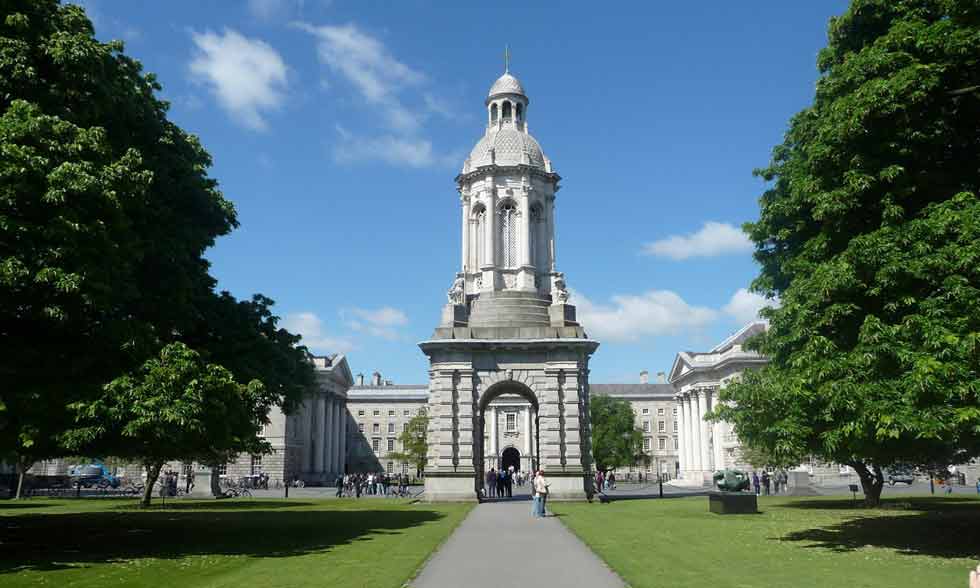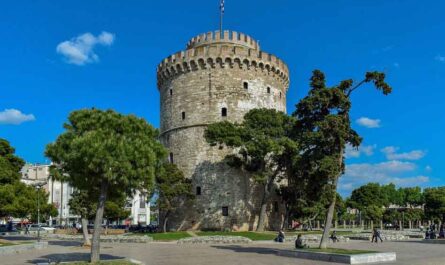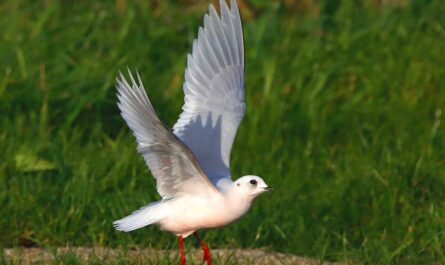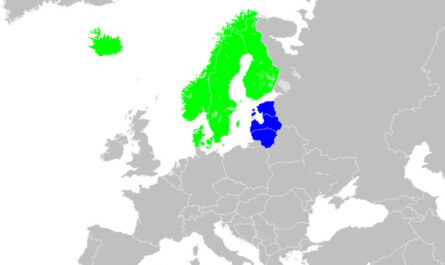There are many interesting facts about Ireland. Fast-forward to the Viking invasions that left an indelible imprint on Irish cities like Dublin, adding a layer of complexity to the historical tapestry. The Norman conquest in the 12th century further molded the socio-political landscape, shaping the emergence of powerful families and the establishment of the English monarchy’s influence. The subsequent centuries witnessed struggles against colonialism, epitomized by the Great Famine of the mid-19th century, which profoundly altered the demographic and economic contours of the island. Pope John Paul II said, “Love is never defeated, and I could add, the history of Ireland proves it.” In this article, I will share some interesting facts about the lovely Ireland.
Interesting Facts about Ireland: Past, Present, Future
Intriguingly, Ireland’s economy also grapples with the echoes of historical challenges, as seen in regional disparities and the legacies of economic downturns. The delicate dance between tradition and progress is evident in the economic policies that seek to balance growth with social welfare, reflecting a nuanced approach to the ever-evolving economic landscape. Here are some interesting facts about Ireland:
1. Irish Castles: A Prolific Landscape
Irish castles, with their stoic grandeur and historic allure, are strewn across the verdant landscape of the island in an astonishing abundance. To delve into the sheer magnitude, the island boasts an impressive tally, with numbers soaring to an awe-inspiring total of 30,000 castles and ruins. These architectural marvels stand testament to Ireland’s rich and tumultuous history, each stone whispering tales of battles, love, and the passage of time.
2. A Castle Sojourn: Immersed in History
Remarkably, some of these majestic castles open their doors to modern-day travelers, offering a unique opportunity to immerse oneself in the rich tapestry of Irish history. The allure of staying within the ancient walls of these castles is a captivating experience, where the echoes of the past resonate through every nook and cranny. It is an invitation to step back in time, surrounded by the tangible remnants of a bygone era, enveloped in the mystique of Ireland’s architectural legacy.
3. Religious Landscape: Ireland’s Spiritual Tapestry
Ireland stands out in Europe with one of the highest church attendances, a testament to the profound role of religion in the lives of its inhabitants. Impressively, approximately 80% of the total population identifies as nominally Roman Catholic, forging a deep connection between the people and their spiritual heritage. This prevalence of religious devotion weaves a distinctive thread into the fabric of Irish culture, shaping its values and traditions.
4. Discover the Majesty of the World’s Longest Coastal Route
Nestled in the heart of Ireland lies an unparalleled gem — the world’s longest coastal route, a breathtaking testament to the country’s natural splendor. As one embarks on this mesmerizing journey, the undulating landscapes unfold like a vivid tapestry, with rugged cliffs that stand as stoic guardians against the mighty Atlantic Ocean. The ethereal beauty of this coastal route captivates every traveler’s soul, weaving tales of maritime adventures and unveiling panoramas that evoke awe and wonder. From quaint seaside villages to expansive stretches of pristine beaches, the scenery is a harmonious blend of tranquility and grandeur, inviting wanderers to immerse themselves in the untamed allure of Ireland’s coastal embrace.
5. Unraveling the Myth: St. Patrick’s Non-Irish Roots
Contrary to the popular notion that St. Patrick, the patron saint of Ireland, was a native son of the emerald Isle, historical revelations paint a different portrait. St. Patrick’s origins trace back to Roman Britain, adding a layer of complexity to the narrative of Ireland’s patron saint. Born in the late 4th century, he endured the harrowing experience of being captured by Irish raiders and subsequently enslaved. His legendary journey, however, was one of spiritual transformation and resilience. Upon escaping captivity, St. Patrick returned to his homeland, only to heed a divine calling to convert the Irish to Christianity. Thus, the man who would become synonymous with Ireland’s cultural identity was, intriguingly, not of Irish birth.
6. Whispers of the Past: Ireland’s Ghost Towns Speak Volumes
Beyond its lively cities and quaint villages, Ireland conceals a haunting secret — a collection of ghost towns steeped in poignant tales and silent echoes of the past. These spectral remnants of human habitation evoke a sense of nostalgia and melancholy, as each crumbling facade and deserted street tells a unique story of abandonment and decay. The reasons behind these ghost towns vary, ranging from economic downturns to the irreversible march of time. Amidst the dilapidated structures, one can almost hear the whispers of bygone eras, envisioning the vibrant communities that once thrived in these now desolate spaces. Ireland’s ghost towns stand as poignant reminders of the impermanence of human endeavors and the enigmatic passage of time.
7. Gaelic Sports Craze in Ireland
Undoubtedly, the fervor for Gaelic soccer has emerged as an undeniable cultural phenomenon, blazing through the heart of Ireland. The passionate embrace of this sport by the Irish people stands as a testament to the enduring spirit of their national identity. A captivating spectacle, Gaelic soccer has not only become a pastime but a vibrant expression of communal pride. Its roots deeply embedded in the Irish soil, the sport weaves a tapestry of tradition and modernity, captivating both young and old with its dynamic energy and fierce competition. Moreover, complementing the prominence of Gaelic soccer is the age-old tradition of Hurling, a sport that mirrors the tenacity and skill of its players, further solidifying Ireland’s position as a sports-loving nation.
8. Polish Presence in Ireland Surpassing Native Gaelic Speakers
In a surprising demographic twist, Ireland, a bastion of Gaelic culture, finds itself hosting a greater number of Polish residents than native speakers of the traditional Irish language, Gaelic. This demographic shift, as indicated by the latest census data, unveils a rich tapestry of cultural diversity within Ireland’s borders. The mosaic of languages and backgrounds reflects the evolving landscape of this vibrant nation. The juxtaposition of Polish immigration against the backdrop of Gaelic heritage introduces a fascinating interplay of cultures, creating a contemporary narrative that transcends linguistic boundaries. This unexpected convergence of communities serves as a microcosm of Ireland’s ever-changing societal dynamics.
9. Irish Language Erosion: A Cultural Shift
In the antecedent epoch preceding the notorious Irish Potato Famine, a noteworthy occurrence marked the linguistic landscape of Ireland. A staggering revelation reveals that nearly half of the Irish populace were fluent in the Gaelic tongue. However, the winds of change, turbulent and unforgiving, swept across the Emerald Isle. By the turn of the century in 1900, a transformative metamorphosis had transpired. A mere 15% of the population remained conversant in Irish. This linguistic retrenchment stands as an intriguing facet among the myriad Ireland facts, signifying a profound cultural shift that echoes through the corridors of history.
10. Microscopic Grandeur: The World’s Shortest St. Patrick’s Day Parade
Nestled in the quaint city of Hot Springs, Arkansas, exists an unusual marvel that bedazzles with its pint-sized grandeur—the World’s Shortest St. Patrick’s Day Parade route. One might expect a spectacle stretching across miles, but behold, its diminutive charm encapsulates a mere 98 feet. This minuscule pathway becomes the stage for merriment and jubilation during the celebration of St. Patrick’s Day. Hot Springs, Arkansas, thus etches its name into the annals of eccentricity, proving that grandeur need not always be measured in miles.
11. Pubs in Hibernation: A Quirk in Irish Legislation
Delving into the intricacies of Irish legislation unveils a peculiar facet that persisted until the 1970s, encapsulating a mark of reverence for a sacred day. This legislative idiosyncrasy is none other than the prohibition of pubs from swinging their doors open on March 17. A gesture steeped in tradition, it underscores the profound significance attached to St. Patrick’s Day in the Irish cultural tapestry. As revelers across the globe indulged in merriment, the Irish adhered to a unique tradition, allowing the sanctity of the day to permeate even into the realm of legislation.
12. Drogheda: Ireland’s Flourishing Urban Hub
Nestled within the enchanting landscape of Ireland, Drogheda emerges as the country’s largest city, a bustling metropolis where history seamlessly intertwines with modernity. With an impressive population of 40,956, a figure that has surged by 6.2% since April 2011, Drogheda stands as a testament to the dynamic growth shaping Ireland’s urban centers. The city’s allure lies not only in its numerical supremacy but in the tapestry of stories etched into its cobblestone streets. Each building, each corner, bears witness to centuries of evolution, encapsulating the spirit of a city that thrives on the pulse of progress. Drogheda, with its diverse population and rich history, epitomizes the ever-changing face of Ireland’s urban landscape.
13. Rotunda Hospital: A Monument to Maternity Care
In the heart of Dublin, the Rotunda Hospital stands as a living monument to the miracle of life. Opening its doors in the year 1745, this venerable institution holds the distinction of being the longest-running maternity hospital globally. Through the centuries, it has cradled countless newborns, bearing witness to the evolution of medical care and maternal well-being. The Rotunda Hospital stands not only as a healthcare institution but as a symbol of resilience and the enduring circle of life.
14. The Guillotine’s Enigmatic Prelude in Ireland
In a historical twist, the guillotine, infamous for its association with the French Revolution, made its first chilling appearance in Ireland before reaching the streets of Paris. Astonishingly, records trace its early use back to the year 1307, marking a macabre chapter in Irish history. The guillotine’s eerie presence in Ireland predates its more notorious role in France, adding a layer of complexity to the historical narrative and raising intriguing questions about the interconnectedness of European events.
15. Ireland’s UFO Sightings: A Peculiar Anomaly
Nestled in the heart of Europe, Ireland boasts the intriguing distinction of reporting the lowest annual variety of UFO sightings across the continent. This peculiar anomaly captures the imagination, turning the spotlight on Ireland’s unique relationship with the unexplained. Against the backdrop of its lush landscapes and historic charm, the scarcity of UFO reports adds a layer of mystique to the Emerald Isle, leaving both locals and visitors alike pondering the cosmic enigma that shrouds the Irish skies.
16. Buenos Aires: South America’s St. Patrick’s Day Extravaganza
In the vibrant tapestry of South American culture, Buenos Aires emerges as a captivating canvas hosting the grandest St. Patrick’s Day celebration on the continent. Amidst the tango rhythms and lively spirit of Argentina’s capital, the city transforms into a kaleidoscope of green revelry. The juxtaposition of Irish traditions against the backdrop of Latin American exuberance creates a spectacle that resonates with the global significance of St. Patrick’s Day, making Buenos Aires an unparalleled destination for those seeking a fusion of cultures and festivities.
17. Emerald Illumination: A Green Spectacle Across 300+ Landmarks
In the kaleidoscope of global celebrations, St. Patrick’s Day stands out as a beacon of Irish pride, transcending borders. In the jubilant year of 2018, over 300 stadiums, statues, museums, and towers worldwide donned the vibrant hue of green to partake in the collective celebration. This symbolic gesture, uniting iconic landmarks across diverse landscapes, showcases the universal appeal of Ireland’s cultural heritage. From the colossal structures to the intimate corners of the globe, the collective green illumination echoed the shared joy of St. Patrick’s Day, creating an awe-inspiring spectacle that bridged continents in a luminous celebration of Irish identity.

18. A Tapestry of Ireland’s Rich Cultural Fabric
Delving into the essence of Ireland unveils a rich cultural tapestry woven with threads of history, folklore, and resilient traditions. Beyond the surface allure of its picturesque landscapes lies a nation that has gracefully embraced its heritage, giving rise to a myriad of intriguing customs and stories. From the ancient whispers of Celtic mythology to the modern echoes of literary giants, Ireland’s narrative unfolds with a poetic cadence, inviting the world to immerse itself in the captivating depth of its cultural reservoir.
19. A Symphony of Green: St. Patrick’s Day Recap
Reflecting on the vibrant celebration of St. Patrick’s Day in 2018 reveals a symphony of green that resonated across continents. The recap of last year’s festivities paints a vivid tableau of over 300 landmarks bathed in the iconic color, symbolizing the unity of diverse cultures under the Irish banner. Each green-lit structure becomes a note in the melodic composition of global jubilation, encapsulating the spirit of St. Patrick’s Day as a harmonious celebration that transcends geographical boundaries.
20. Ottoman Aid and Royal Requests
In the midst of the devastating Irish Potato Famine, a unique and somewhat obscure chapter of history unfolds, revealing an unexpected twist involving Ottoman Sultan Khaleefah Abdul-Majid. Amid the widespread suffering, the Sultan, in a compassionate gesture, contemplated dispatching a substantial £10,000 to aid the beleaguered Irish farmers. However, the plot thickens as Queen Victoria, already having sent £2,000, intervened with an intriguing request. Her Majesty, in an intriguing turn of events, urged the Sultan to limit his assistance to a mere £1,000. Subsequently, complying with the Queen’s request, the Sultan indeed sent the reduced sum. Yet, beneath the surface of this diplomatic exchange, a clandestine act of benevolence unfolded – five ships laden with life-sustaining provisions were discreetly dispatched alongside the nominal financial aid.
21. The Ravages of the Irish Potato Famine
Diving into the broader context of history, the catastrophic period known as the Great Famine, or the Irish Potato Famine, left an indelible mark on the Irish population. The consequences were dire, with a staggering toll of over 1 million Irish lives lost and nearly 2 million forced to seek refuge in distant lands through emigration. This colossal upheaval resulted in a cataclysmic reduction of the population by approximately 25%. The famine’s grip on Ireland during this time transcended mere statistics, becoming a poignant testament to the resilience and suffering of a nation grappling with the scarcity of a staple food source.
22. Polar Bears’ Ancestral Connection to Ireland
In a fascinating and unexpected twist of biological heritage, the lineage of all contemporary polar bears can be traced back to an unlikely matriarch – a solitary brown bear from Ireland. This enigmatic figure lived on the island between 20,000 and 50,000 years ago, navigating a vastly different landscape from the frozen tundras polar bears now call home. The remarkable journey of this lone bear, possibly swimming across vast expanses of water, reveals an ancient connection that defies conventional geographical expectations. Today, every living polar bear, the epitome of Arctic resilience, carries within its genetic makeup the echoes of an Irish ancestor, bridging continents and climates across the vast expanse of time.
23. Irish Potato Famine and Exportation Dilemma
During the harrowing era of the Irish Potato Famine, Ireland found itself entangled in a paradoxical situation. While the country continued to yield bountiful portions of meals, a dark undercurrent prevailed as these vital resources, deemed “cash crops,” were not allocated to alleviate the pangs of the starving populace. Instead of providing succor to the impoverished, these life-sustaining provisions were callously exported in exchange for monetary gain, exacerbating the suffering of the destitute. This tragic chapter underscores the stark contrast between abundance and deprivation, as Ireland’s agricultural output became a source of profit rather than a means of sustenance for its own people.
24. Majestic Irish Wolfhounds: Tallest Canine Royalty
Irish Wolfhounds stand as towering sentinels in the canine kingdom, boasting the title of the tallest dog breed globally. These magnificent creatures command attention with their impressive stature, embodying both grace and strength. Their regal presence has even caught the eye of historical figures, as exemplified by John F. Kennedy, who shared his abode with two loyal companions, Wolfie (a mixed breed) and Shannon (an Irish Cocker Spaniel). The juxtaposition of these towering canines alongside influential figures adds an intriguing layer to the historical tapestry of Ireland.
25. Interesting facts about Ireland’s history
Nestled in the heart of Europe, Ireland boasts a rich and intricate history that unfolds like the pages of an ancient manuscript. From the prehistoric era, marked by the enigmatic megalithic structures of Newgrange and Knowth, to the arrival of the Celts with their vibrant culture, the Irish landscape bears witness to the passage of millennia. The medieval period ushered in the Gaelic kingdoms, with tales of epic battles and sagas that resonate through the annals of time. Ireland’s conversion to Christianity, spearheaded by the likes of St. Patrick, brought a new chapter, interweaving spirituality with the fabric of the nation.
26. Interesting facts about Ireland’s government
Encompassing the principles of democracy and a constitutional framework, Ireland’s government stands as a testament to the nation’s commitment to fostering a just and inclusive society. At its core, the political landscape revolves around the Oireachtas, the national parliament, comprising the Dáil Éireann (House of Representatives) and the Seanad Éireann (Senate). The President, serving as the ceremonial head of state, brings dignity to the constitutional structure.
Intricately designed, the Irish political system embodies proportional representation, reflecting a commitment to pluralism. Political parties such as Fianna Fáil, Fine Gael, and Sinn Féin engage in the spirited democratic process, shaping the policies that define Ireland’s trajectory. The Taoiseach, or Prime Minister, leads the executive branch, steering the nation through the complex currents of governance. The delicate balance between tradition and modernity is encapsulated in the workings of Ireland’s government, where the echoes of historical struggles resonate in the halls of power.
27. Interesting facts about Ireland’s economy
The economic tableau of Ireland unfolds as a dynamic narrative, where the traditional agrarian roots have blossomed into a modern, globally connected powerhouse. The Celtic Tiger era of the late 20th century witnessed a transformative economic surge, propelling Ireland into the forefront of technological innovation and foreign investment. Dublin, with its skyline adorned by corporate giants, epitomizes the economic hub that Ireland has become.
The country’s economic prowess is anchored in sectors such as information technology, pharmaceuticals, and finance. Multinational corporations find a welcoming home in the Emerald Isle, drawn by a skilled workforce and a favorable business environment. The European Union membership has further fortified Ireland’s economic resilience, providing a platform for trade and collaboration.
28. Titanic’s Origins: Belfast’s Maritime Marvel
The Titanic, a monumental feat of maritime engineering, was crafted in the shipyards of Belfast, Northern Ireland. This fascinating nugget of history places Ireland squarely on the map of nautical prowess. The ship’s construction in this Northern Irish city adds a layer of intrigue to the tragic tale of the Titanic, making it more than a mere vessel; it becomes a symbol of Ireland’s contribution to the grand narratives of exploration and industrial achievement.
29. Dublin Mean Time: The Chronological Tapestry
Between the years 1880 and 1916, Dublin operated on a unique temporal rhythm known as Dublin Mean Time (DMT). The authoritative pulse of this temporal beat emanated from the Dunsink Observatory, lending an air of precision and authority to the Irish capital’s daily life. Notably, DMT deviated from the international standard, being 25 minutes and 21 seconds behind the widely accepted Greenwich Mean Time (GMT). This temporal quirk adds a layer of peculiarity to Ireland’s historical chronicles, reflecting a distinctive approach to timekeeping that sets the country apart in the global temporal landscape. How AI, ChatGPT maximizes earnings of many people in minutes
30. St. Patrick’s Snake Banishment and Ecological Isolation
Delve into the peculiar ecological landscape of Ireland, and a captivating revelation surfaces—no wild snakes are slithering through its verdant terrain. This absence is not a mere coincidence but a consequence of the island’s geographical isolation. The vast expanse of the surrounding sea acts as a natural barrier, thwarting the ingress of numerous animals that thrive in mainland Europe. Yet, a captivating legend weaves through this ecological narrative, attributing the absence of snakes to the actions of St. Patrick. According to popular belief, the patron saint of Ireland banished these serpentine creatures, leaving the island devoid of their presence. The intertwining of folklore and ecological isolation creates a fascinating tapestry that shrouds Ireland in a mystique of its own.
31. The Enigmatic Blarney Stone and the Gift of Eloquence
Nestled in the annals of Irish lore, Blarney emerges as a place of mysticism and charm, with its eponymous stone adding an enigmatic dimension. Perched on the parapet, the Blarney Stone is renowned worldwide for a purported gift—one that grants the bestowed with the everlasting art of eloquence, aptly termed the ‘Gift of the Gab.’ This ancient tradition involves leaning perilously backward to plant a kiss on the fabled stone. The ritualistic act is believed to endow the kisser with unparalleled linguistic prowess, ensuring a silver-tongued finesse in their verbal expressions. Beyond its tangible presence, the Blarney Stone encapsulates the intangible allure of Irish folklore, where stones become vessels for mythical gifts and oral fluency becomes a treasured legacy.
More Interesting Articles
- 30 Interesting Facts about Abu Dhabi Tourism
- 20 Interesting Switzerland Facts One Should Know
- 26 Interesting Great Pyramid of Giza Facts
- 12 Persian Empire Facts and Achievements
- El Salvador History – How the Country Moves On
- History of Latin America – Twists and Thrills
- Spanish Colonization of the Americas
- The United States in Order of Statehood
- Dumb Laws in the US You Should Know Before Travel
- British National Museum Tourists Guide with Time Table
- British History Museum Collection Tourist Guide
- 81 Interesting Facts about Singapore
- British War Museum Stands with a Glorious Past
- 130 Facts of El Salvador Everyone Should Know
- 52 Interesting Fun Facts about New Mexico, USA
- 200 Interesting Facts About Thailand
- Jollof Rice Recipe for Nigerian – Taste, and Preparation



